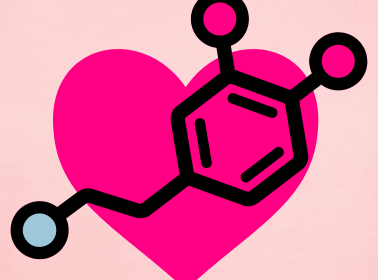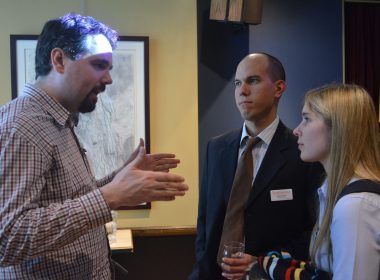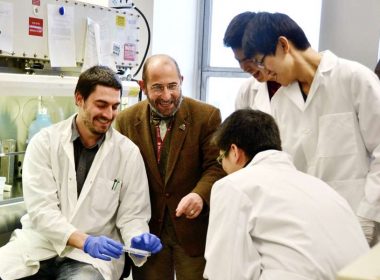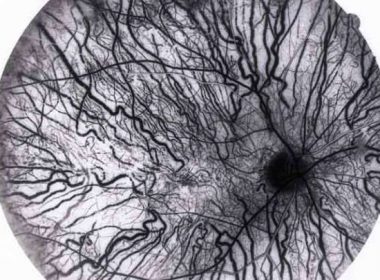When we meet someone that we like, our heart flutters and we feel short of breath. On a first date, our stomach is full of butterflies. And when we fall in love, we feel a powerful sense of empathy towards our partner. While poets, novelists, and songwriters have described the[Read More…]
Science & Technology
The latest in science and technology.
Feb. 11 SciTech calender
Psych of Sex—What’s going on in your head when you think about sex? Hosted by the McGill Psychology Student Association (MPSA) featuring Dr. Jim Pfaus, Concordia’s leading psychosexual researcher Date: February 11, 2014 from 6-7 p.m. Location: Leacock 219 McGill Start-Up Career Fair Students have the opportunity to bring[Read More…]
Sochi 2014: mechanisms of performance enhancing drugs
While the Olympics often garner attention as a series of events showcasing determination, hard work, and perseverance, there is a dark side associated with the Games: the abuse of performance enhancing drugs (PEDs). PEDs have long been connected to the Olympics. As far back as the first games in ancient[Read More…]
Mapping out the path to entrepreneurship
You have a great idea for a revolutionary app that will make a huge difference in how we view the current technological industry. The problem is that you don’t have the money, contacts, or know-how to transform this idea into a marketable, profitable product. What do you do now? The[Read More…]
Memory-making in action: researchers film brain activity
This January, scientists at the Albert Einstein College of Medicine of Yeshiva University captured on screen the process of the brain making memories. Using mice to perform their experiments, researchers added fluorescent tags to mRNA (messenger ribonucleic acid) molecules that helped them track these molecules as the brain underwent the[Read More…]
The music of the immune system
Sitting in on an interview with Chair of the Department of Microbiology and Immunology Joaquin Madrenas, it’s easy to be mesmerized by his knowledge, charisma, and aptitude to take on life. “I feel fortunate; I enjoy everything!” said Madrenas. “[Aside from science, I try to engage in various activities] with[Read More…]
Gene therapy shows promise in combatting blindness
In her novel Light in my darkness Hellen Keller wrote, “There is no better way to thank God for your sight than by giving a helping hand to someone in the dark.” Robert MacLaren, a surgeon and professor at the University of Oxford, has set out to do just that[Read More…]
Science from science fiction: invisibility cloaks
Whether it’s used as a plot device or simply as a cool effect to amuse spectators, invisibility is and has been part of science fiction for almost as long as the genre has existed. One early example is H.G.Wells’ The Invisible Man—a novella about a former medical student who invents[Read More…]
Researchers discover new way to induce event-specific amnesia
With the simple charm “obliviate,” Gilderoy Lockhart attempted to wipe the memories of Harry Potter and Ron Weasley in Harry Potter and the Chamber of Secrets. The release of a publication in Nature Neuroscience suggests a similar spell may soon serve as a treatment for disturbing memories. This September, researchers[Read More…]
New class of hypervelocity stars discovered
At the heart of our Milky Way galaxy lies a black hole—a gravitational sink so strong that not even light, which travels at speeds of close to 300 000 km/s, can escape its pull. However, a recent study conducted by researchers at Vanderbilt University in Nashville, Tennessee observed a new[Read More…]












